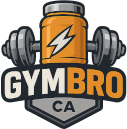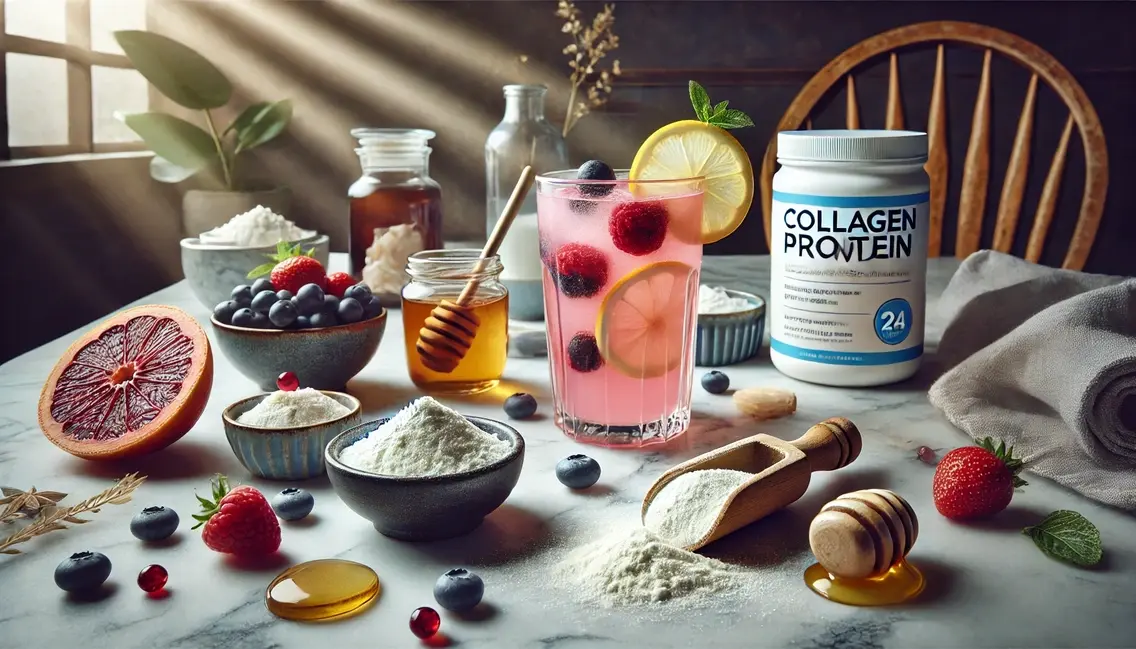Unlocking the Secret to Ageless Health: The Collagen Revolution
Imagine discovering a single protein that could defy the clock on your skin, fortify your joints, and boost your vitality like never before. Enter collagen protein, the beauty and wellness game-changer that the world can't stop talking about. But as powerful as it is, this transformative supplement often remains misunderstood or underappreciated.
Collagen, the structural protein comprising much of our skin, bones, tendons, and ligaments, delivers benefits that sound almost too good to be true. Studies indicate it not only improves skin elasticity and hydration but also reduces wrinkles and eases arthritis pain—all scientifically validated benefits (Source: NIH). Yet, myths and misconceptions can leave many pondering: Does it really work? And is it the right fit for me?
In this exploration, we’ll demystify the magic of collagen supplements, address concerns about its sources, such as marine or bovine, and unveil how to maximize its potential in your daily regimen. Whether you're battling the first signs of aging or seeking a natural remedy for joint discomfort, you'll be surprised by what collagen can achieve.
Ready to transform your health from the inside out? Let's dive into the science and unlock the secret to ageless vitality with collagen protein.
Health Benefits of Collagen Protein
Collagen protein serves as a fundamental building block within the body, underpinning vital functions related to skin, joints, and connective tissues. Increasingly, collagen has gained recognition for its therapeutic potential in enhancing overall health and vitality.
Key Health Benefits
- Improves Skin Elasticity and Hydration
Supplementing with collagen can significantly enhance skin elasticity and hydration, which are crucial in reducing wrinkles. Clinical studies support the role of collagen in improving skin appearance and mitigating visible signs of aging, offering a natural way to promote youthful skin.
- Supports Joint Health and Reduces Pain
Incorporating collagen protein into your routine can greatly improve joint health by decreasing pain and discomfort often associated with arthritis. Scientific research highlights collagen's role in maintaining cartilage integrity, potentially alleviating joint pain and boosting mobility, thereby enhancing one's quality of life.
- Contributes to Overall Connective Tissue Strength
As an essential structural protein, collagen fortifies connective tissues such as tendons, ligaments, and bones, providing them with added support and resilience. This strengthening effect helps preserve their function and integrity, contributing to robust musculoskeletal health.
Optimizing Health with Collagen Protein
The diverse benefits of collagen protein emphasize its crucial role in supporting skin vitality and joint well-being. For those aiming to leverage these advantages, consider enhancing your health with LEANFIT Hydrolyzed Collagen. This supplement offers 10 grams of grass-fed collagen peptides per serving, enriched with vitamin C, hyaluronic acid, and bamboo silicon, supporting joint, skin, and immune health. Harnessing quality collagen sources and smart supplementation can unlock the full potential of this influential protein for your overall well-being.
Dietary Sources of Collagen Protein
Collagen protein is an essential structural component of the human body, renowned for its role in maintaining the health of skin, joints, and connective tissues. While you can source collagen naturally from certain animal products, consistently meeting your body's daily collagen needs through diet alone can be challenging.
Natural Sources of Collagen Protein
- Bone Broth
Bone broth, made by simmering animal bones and connective tissues, is an excellent source of collagen. This slow-cooking process helps release collagen and additional nutrients, making it a beneficial option for those seeking to improve joint and skin health.
- Chicken Skin
Chicken skin is packed with Type I and III collagen, which are significant for promoting skin elasticity and joint function. Including cooked chicken skin in your meals can supplement your collagen intake, albeit occasionally due to its high fat content.
- Fish Skin
Fish skin, particularly from marine sources, provides Type I collagen, celebrated for its high bioavailability. Despite being a potent source of collagen, regularly consuming fish skin might not be feasible for everyone due to taste preferences and dietary restrictions.
Challenges in Meeting Collagen Needs Naturally
Incorporating collagen-rich foods into your diet can certainly contribute to your body's nutrient needs. However, consistently achieving the recommended daily collagen intake from these natural sources alone can be difficult. The specific preparation required and the amount needed to reach therapeutic levels of collagen may not always align with modern dietary habits.
To bridge this gap, you may consider supplementing your diet with a collagen supplement. For example, many Canadians turn to LEANFIT Hydrolyzed Collagen, which offers 10g of grass-fed collagen peptides per serving. Enriched with vitamin C, hyaluronic acid, and bamboo silicon, this supplement is designed to support joint, skin, and immune health. It provides a practical solution for those looking to meet their daily collagen needs more conveniently and effectively.
Daily Intake for Collagen Protein
Collagen protein plays a vital role in maintaining skin elasticity, joint health, and the overall function of connective tissues. As we age, our natural collagen production decreases, which can lead to wrinkles and joint discomfort. By including collagen in your diet, you can bolster skin health, alleviate arthritis symptoms, and enhance tissue strength.
Recommended Daily Intake
Though there isn't a specific Recommended Dietary Allowance (RDA) for collagen, research and health professionals typically suggest the following guideline:
- Adults: 2.5 to 15 grams per day
This recommended range considers individual needs, desired health outcomes, and the specific type of collagen used (e.g., Type I, II, or III). Consistency in your daily intake is key to experiencing the full benefits of collagen.
Consuming Collagen Protein Daily
Integrating collagen into your diet can be done through natural foods like bone broth and chicken skin or through supplements such as powders or capsules. Ensuring adequate intake through supplements like Enhance your health with LEANFIT Hydrolyzed Collagen – 10g of grass-fed collagen peptides per serving, enriched with vitamin C, hyaluronic acid, and bamboo silicon for joint, skin, and immune support! is an effective option. It's important to remain aware of possible side effects, such as digestive discomfort or allergies, and consult a healthcare provider as necessary.
Achieving and maintaining proper collagen levels isn't just about daily consumption—it's about consistency for lasting health improvements. In the next section, we will explore signs of collagen deficiency and how to effectively address them.
Deficiency of Collagen Protein
Collagen is not just a buzzword in skincare—it's a pivotal protein that underpins your skin, joints, and connective tissue health. Yet, neglecting your collagen intake can lead to more than just cosmetic issues; it holds serious implications for your overall well-being, potentially setting the stage for conditions that compromise your quality of life.
Deficiency Symptoms and Consequences
- Premature Aging of Skin
Collagen contributes significantly to skin elasticity and moisture. A deficiency doesn't just mean more wrinkles; it accelerates the aging process, leaving skin sagging and less vibrant.
- Weakness in Joints and Ligaments
With collagen forming the backbone of joint and ligament support, low levels aren't merely discomforting—they amplify the risk of joint pain and stiffness, increasing susceptibility to injury, especially if you lead an active lifestyle.
- Thinning Hair and Brittle Nails
Insufficient collagen correlates with reduced keratin production, essential for hair and nail strength. This manifests as thinning hair, excessive hair loss, and nails that chip and break easily.
- Compromised Bone Health
As a key component of bone structure, collagen deficiency poses grave risks, potentially leading to reduced bone density and issues like fractures and osteoporosis, escalating with age.
Addressing Collagen Deficiency
Ensuring an adequate intake of collagen-rich foods, like bone broth or chicken and fish skin, is crucial not just for skin but also for your entire musculoskeletal system. Supplements offer a practical solution, yet selecting high-quality, verified sources can be challenging and vital in avoiding less effective alternatives. For those seeking a reliable supplement, enhance your health with LEANFIT Hydrolyzed Collagen, providing 10g of grass-fed collagen peptides per serving, enriched with vitamin C, hyaluronic acid, and bamboo silicon—for comprehensive joint, skin, and immune support.
Our exploration into the nuances of collagen might stir questions or challenge some misconceptions you hold. It's pivotal to delve into common FAQs to clear these doubts and maximize the benefits your body receives from collagen supplements.
Conclusion
As we uncover the transformative power of collagen, the question isn't just about if you should integrate it into your wellness regimen—it's about how soon you can start experiencing its myriad benefits. By understanding collagen's pivotal role in maintaining skin resilience, joint flexibility, and overall vitality, you're positioned to harness its full potential, redefining health from the inside out.
So, what steps will you take today to defy the signs of aging and enhance your joint health? Will you start with natural sources or turn to high-quality supplements for convenience and efficacy? Share your thoughts or experiences with collagen below, and spark a discussion that could inspire and guide others on their journey to ageless health.
Remember, good things come to those who take action. Embrace the collagen revolution, and let each small step towards increased collagen intake be a testament to your commitment to a healthier, more vibrant you. Because in the quest for enduring health and beauty, collagen is more than a supplement—it's your secret weapon.

